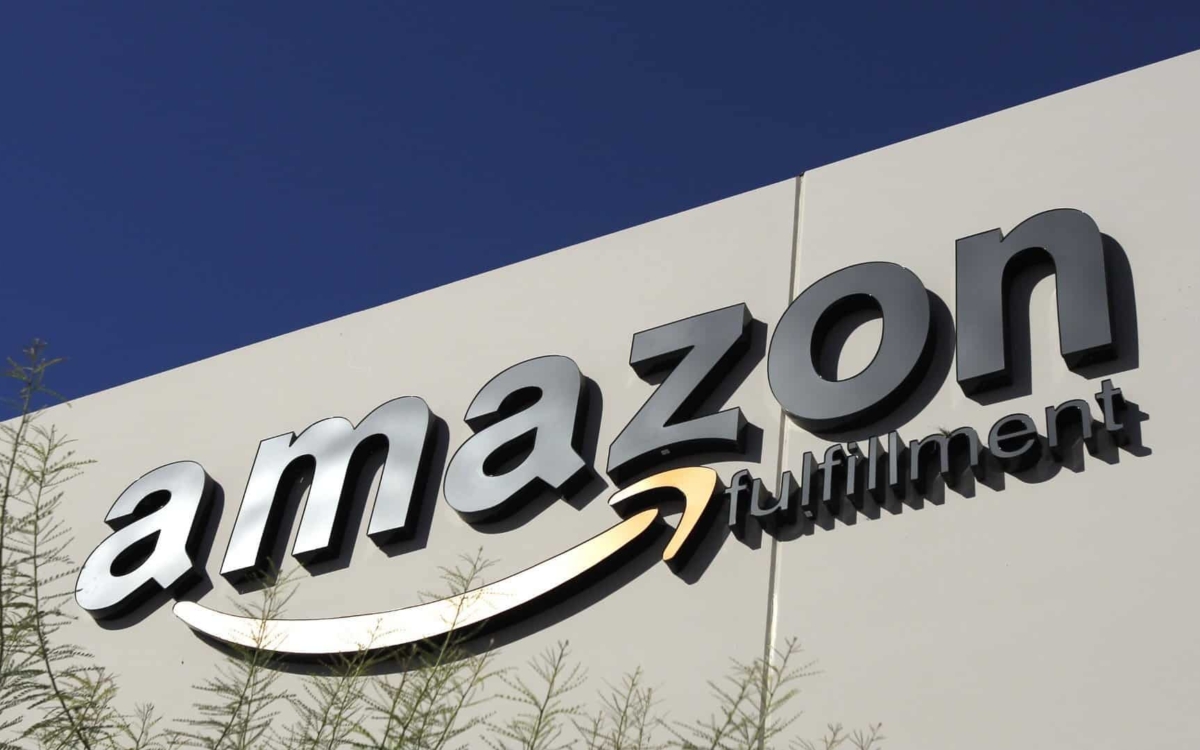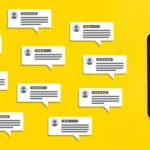7 Lessons I Learned Launching 23 Products on Amazon in 2016

When you buy something through one of the links on our site, we may earn an affiliate commission.
As I reflect back on my business this year, I realize that I've had a lot of both ups and downs.
I sold my software company, Long Tail Pro, and that was a huge win this year. On the other hand, I've launched several products on Amazon and some of them have performed terribly.
However, some of my products have also done quite well…selling more than I expected.
I started the year with the ambition of launching 15 new products on Amazon by July. Now that the year is over, I've gone from selling just 5 products at the beginning of the year to now selling 28 total products!
Today, I want to share the lessons I've learned by launching 23 new products on Amazon in 2016.
1. Taking Lots of Swings Can Work
I recently read the book, “Originals: How Non-Conformists Move the World” by Adam Grant and there is an entire section dedicated to the fact that innovation is often achieved by those taking lots of attempts. The more swings you take, the more chances you get at hitting a home run.
This was true for Thomas Edison, who had tons terrible ideas (thousands), but also had some great ones (light bulb, phonograph, movie camera, etc).
In 2016, I took this idea to heart and launched as many products as I possibly could.
The end result is that my Amazon FBA business revenue grew by 433% in 2016! (In full transparency, I only started selling on Amazon in March 2015, so I didn't have a full year in 2015 to compare to 2016).
While some of these products were more unique ideas, many of these were generic ideas without any originality. In fact, some of these were simply ordered straight from Aliexpress and quickly launched on Amazon just to see if there was a market there.
This is the only way I could have launched so many products in a year.
2. Unique Products Sell Better Than Generic Products
As I look back at what products are selling well for me, I can clearly see that unique products are the big winners.
So, while I launched lots of “generic” products, the few unique products that I launched are the ones driving most of the revenue.
What I mean by “unique” is that its has very few or no products exactly like it on Amazon. The competition for the exact product or variation is extremely low.
So, if I was selling shower-heads, and I was the only one selling a pink shower head or a shower head with some other unique feature, that is what I'm considering unique here.
I'm not necessarily talking about a patented product or revolutionary design (although that's on my bucket list).
When I look at my listings, I count that 8 of my 28 listings have what I would consider a “unique” feature that helps them stand out from the crowd. These 8 listings easily drive over 80% of the sales.
So, going forward for 2017? I'll be focusing on more unique products and not messing around with the generic or copy-cat type products. In fact, I'm already in the process of designing a couple of truly unique product ideas (would require a special mold to create, etc) and see more unique ideas as the future of my business.
3. Unique Products Have a Higher Price Elasticity
If you have a unique idea, you will have less competition. As a result, you can typically raise your price and drive higher margins without impacting your sales velocity.
Customers are willing to pay higher prices when you are the only one (or one of the only ones offering your product).
If there are 4 or 5 pages of your exact product on Amazon, you usually can't get away with raising your prices.
As a result, not only have I found that my more unique products sell more, they also have the highest profit margins.
4. Some Winners Can Become Losers
When I started 2016, I had 5 total products and 3 of those were what I would call big winners. The sales volume increased dramatically in January for one of my products and I needed to reorder.
Instead of looking at the average sales over the previous 3 or 6 months and taking an average, I simply looked at what was happening in the most recent month and ordered a full container load of this product (yes, it's an oversized product).
Over the next couple of months, the sales of that particular products started creeping downward. This trend continued pretty much the entire year, until this once great selling product has become a dud.
I've done everything I know to revive it: giveaways, huge discounts, sponsored ads, and more. However, at the end of the day, I'm pretty much resigned to the fact that I'm going to most likely drop this SKU from my lineup.
The 2 big reasons I see for the drop in sales: negative reviews and it's a generic product.
For 2017, I'll be focusing more on quality and innovation.
5. Manufacturing is Capital Intensive
I've mentioned this in the past, but I think its worth re-iterating for anyone interested in jumping into Amazon FBA: this business can take a lot of capital.
Unlike digital products, if you start selling a lot you have to re-order inventory before you get paid from Amazon. When you add in a couple months for manufacturing time, your bank account can run dry long before you get paid.
So, if you are bootstrapping this business. You might only be able to go one or two products at a time and may not be able to grow as quickly as you would like.
This lesson of lag time between manufacturing and getting paid was something that I quickly realized this year.
Fortunately, during the second half of this year the business has become cash flow positive, and my bank account is finally growing each month instead of shrinking.
This is just a big heads up for anyone considering entering the game.
6. Amazon is Great, and Amazon is Terrible
Amazon is an amazing platform with TONS of traffic. Billions of dollars of product was sold in just one day during Black Friday this year (and yes, it was the biggest day of the year for me as well).
Selling on Amazon is a great way to tap into ready and willing buyers. Amazon stores, packs, ships, and provides all the customers. I never could have built the size of business that I have so quickly without Amazon as a platform.
However, there is also an ugly side to Amazon that I learned about this year.
Yes, like many of you perhaps, I'm always skeptical when a big corporation controls so much of my business. I mean, they could shut us down at any point!
I was never shut down; however, I did receive quite a scare this year.
There was a safety incident that a customer had with one of our products, and the listing was closed by Amazon. (Don't worry, the customer was not hurt or anything, it was a pretty minor thing. And the customer ended up giving us a 5 star review after we resolved their issue through customer service).
Amazon does not communicate well (like all large corporations I've dealt with like Google, etc.). They wouldn't tell us what the safety incident was, but only that one occurred.
They wouldn't tell us how to get our listing reactivated, but only that we needed to submit a plan to address the issue.
After several emails to Amazon, we still got no where, other than a very scary email saying that we could never sell the product again and if we did, they would shut our account down.
Whoa.
I decided to hire a consultant, Chris McCabe at EcommerceChris.com, and he was able to help me formulate a plan and get the listing reactivated. I'm happy to say that we've addressed the issue, including additional testing on future batches, and this SKU is now one of our best selling products.
However, the fear of Amazon is still in me.
Yes, Amazon is great, but I definitely learned that they can have a darker side for your business as well.
I hope to become less Amazon reliant in the future by selling on my own websites and driving traffic through SEO, social media, and paid strategies.
7. Think Bigger
I recently attended Freedom Fast Lane Live in Austin, Texas. Although the speakers at the conference shared almost no strategies directly that will help me grow my Amazon business, they did help me to think bigger.
In fact, as I networked with other attendees, I could see that perhaps some of my results have been limited by my own thinking.
I met Amazon sellers that started around the same time that I did that are doing between $3 to $5 million a year in sales!
I know it's not healthy to compare directly to those around me, but this help me see that I could be doing so much more. Yes, I got quite a bit done this year by launching 23 products on Amazon (okay, my employee Jake really did all the work), I now realize that a little bit more focus and perhaps a slight shift in strategy could help me grow this business much bigger than I have been thinking.
Seeing so many other sellers face to face and hearing their multi-million dollar stories, is inspiring.
I'm ready to think bigger, build real brands, and grow a true following around those products and brands that I create.
In 2017, I'm ready to take this business from the six figure to the seven figure level and beyond.
Are You With Me?
These are some of the lessons that I've learned over the past year launching rapidly and growing my Amazon FBA business.
I always love hearing about other people having success in their own business as well.
If you are selling on Amazon, I would love to hear in the comments below how 2016 went for you or what lessons you've learned along the way.
Overall, who is with me to start thinking bigger in 2017?
Want to learn step-by-step how I built my Niche Site Empire up to a full-time income?
Yes! I Love to Learn
Learn How I Built My Niche Site Empire to a Full-time Income
- How to Pick the Right Keywords at the START, and avoid the losers
- How to Scale and Outsource 90% of the Work, Allowing Your Empire to GROW Without You
- How to Build a Site That Gets REAL TRAFFIC FROM GOOGLE (every. single. day.)
- Subscribe to the Niche Pursuits Newsletter delivered with value 3X per week
My top recommendations

















52 Comments
Conversation
Interesting , thorough, very educational of your start up experience with FBA; the pros and cons ring clear as a bell. Retail can be a roller coaster ride for sure.
Personally I am not ready for FBA as you clearly , state the capital cash flow requirements are much more demanding than say affiliate marketing. I enjoyed the post tremendously and it further reinforces my quest to concentrate on affiliate marketing at this time, even though the potential in FBA is surely evident for large dollar sales volume and profit.
You basically covered sub topics I never even thought about with great candor so if anyone is contemplating FBA, they have a great idea of what they are getting into as far as potential and risks.
I agree that large corporations, having a control over an on-off switch, for the small business owner is aggravating and quite scary at times.
Great, genuine post again. Your flair for the honest, straightforward, and educational posts is actually a unique quality I find hard to duplicate elsewhere on the internet; sort of in-line with your retail experience with FBA. Thank you Spencer!
Thanks Dan. FBA may not be for everyone, so starting with affiliate marketing is just fine. Good luck!
Hey spencer, always love seeing your updates about Amazon.
I started my my FBA business in November of 2015 and have 4 products live, 2 new ones in production and getting ready to get samples of another product idea.
I can absolutely agree that innovation is huge. ALL of my products are unique. I got lucky on my first product, when my suppliers sent me the samples of the product I originally wanted I also saw that they offered this unique higher quality product that wasn’t listed anywhere.
I had them send me that sample and after receiving it I knew I had to go with it. It was also about $15 per unit to get it from China to FBA but it was just too high quality.
From the day I launched that product and was selling it I got nothing but great reviews and exclamations for customers telling me how great my product was. It’s now the highest reviewed and highest rated product in it’s category.
It also forced my hand. I learned that if I was going to launch more products they had to be better than the competitions and had to be unique.
With a couple weeks left in 2016 I’m on track to doing a little over 500k in revenue. After ALL expenses are paid by everything I’ll be making roughly 12%-15% net profit.
Not the best net profit but it’s the first full year. I can definitely grow it from here.
Also I started incorporating affiliate marketing with my site and was following niche site 3.0 from the beginning.
Doing about $75 -$100 a month right now for my affiliate earnings with no back links. My goal is to release about 25 more affiliate content articles and then start slowly growing back links.
I’d like to be making $1000 per month with my affiliate income.
So a question I have for you is for someone making $75-$100 a month with no backlinks if they started back linking what could you estimate they would start earning?
Thanks for the great content over the last year and sorry for the long winded post
Great thoughts, Alan! Its hard to estimate what link building would do the earnings of your website. That all depends on the niche you are in, where you are currently ranked vs where you could be ranked, and more.
Bottom line though is that with added content and links, you are likely to increase your earnings. Good luck!
As someone who is yet to get into FBA, I picked up some good advice in this article.
Good post Spencer, and thanks.
I noticed you mentioned about building a proper brand with a following, and becoming more reliant on selling from your website as opposed to Amazon > I agree this is 100% the way to diversify and minimise risk if you want a long term business.
Until you get a scare from Amazon, its just so juicy and tempting to keep doing what you’re doing even though a lot of your eggs are in one basket.
I’m interested to know how your strategy is going to change from what you are doing now to make this change to more of a brand and become a bit more of a naturally followed site?
Do you plan on putting your name to the site, writing some articles yourself, building a closer relationship with customers and being more personal as opposed to numbers and research based?
The people you met at the networking event – how do they brand themselves differently to the standard Amazon niche and FBA masses of sites to achieve millions of dollars a year?
You could probably write a post entirely on this topic.
Well, I had already started building out 3 “brand” websites. I followed all the principles taught here: https://www.nichepursuits.com/how-to-build-niche-website/. The only thing not covered in that article is that I added a shopify store so that I can sell directly on my site as well.
Now I just need to put more effort into building a social media following, email list, etc (which I’ve already started as well).
For the most part, I will not be putting my own name on the sites. Most of the people I met at the conference had not done much in regards to building a branded website, they mostly just sell on Amazon.
I am here withyou
🙂
Thanks spencer for this awesome guide, whatever you write, you cover all the ends of it. That’s what I like about you.
I have a doubt. I have a website ranking for a keyword with 40,000 searches. How do I proceed with creating and selling the product on Amazon? I am from India & I am ignorant of the legal formalities.
How do you ship from China to USA? What is the cost of shipping and number of days taken. Does it go directly to amazon fba center or someone must pick up the product clearing customs and sent it to amazon?
Does the product arrive with barcodes/packing or do you have a team to do it for you?
And the last & main question, If I decide to sell the product on my own website using woocommerce, what fulfillment service you recommend?
Thank you so much, Awaiting your reply.
People from all over the world can sell on Amazon.com, you should have no issues getting an account. Use a logistics company to ship goods from China to US. Just google search “logistics company” or something similar. Your logistics company will handle picking up/customs/and forwarding to Amazon.
You can manufacture with barcodes or have amazon slap them on for you.
I would use Amazon to fulfill if you sell through your own website. Its really not that hard. Good luck!
Thank you for the great article. Can you provide the name of the consultant you used?
Chris McCabe: http://ecommercechris.com/
Great post. I am learning about amazon FBA. I downloaded your Amazon FBA guide. I want to start within 3-4 months. Looking another informative post from you.
Thanks
Adrian
Thanks!
Hey Spencer!
Another time learning a lot with you!
You’re really awesome and I agree with you – specific and detailed products are better to convert. I tried some offers here in Brazil.
When we do something specific for a small group of person but we work in their specific pain, we do a great job! And of course, these 7 lessons you showed to us, will bring me some great new ideas to 2017 too.
I love your job and I’m with you in Long Tail! 🙂
Thanks for everything and a great 2017 for both of us.
André.
PS.: I’m sorry my poor English. haha
Thanks Andre…good luck!
Congrats!!! That is some amazing numbers.
And thanks for sharing. Especially the ‘scare’ email – glad you found a solution!!
I am with you in thinking big for 2017. Although mine will not be Amazon I am all in. The time is now the person is you!
Thanks Chris!
Really, truly amazing information. You make something that seems like a big project into easy to follow steps.
I’ll be sharing your post across my channels.
Spencer,
Great post! Thanks for sharing lessons learned.
I just started on FBA in mid-2016 and have launched two products.
I agree, product needs to be unique but what I thought was ‘unique’ when I started
(including an free accessory with the product) really was not enough for customer to differentiate mine from others. That’s still the big challenge for me, finding products that are really unique in the eyes of the customers.
Lesson-don’t use a product like JungleScout as the main criteria for product selection!
Great tool- but think of it more as a compass than GPS.
Have to move quickly-During the months I took for me to take the leap on FBA many other sellers had already ordered similar products. By the time I got there, they had launched and done big giveaways.
My 2nd product is solid-but lots of new sellers with similar products are launching now so I fear they’ll start a price war or launch an exact copy.
I agree, it’s very capital intensive! I have a goal of net profit/month from FBA but when I
calculate the sales needed to make that and lag time between production to getting paid by Amazon, the cash outlay is a pretty big number…for me it’s much more stressful that having a digital product or service.
I’m still glad I jumped into FBA but, as you said, there are some big challenges…
Great thoughts Marcel! There are some challenges, but so does any business worth pursuing.
You are right spencer Business is all about creating problems and then solving those problems.
Hi Spencer,
I am new to blogging. Can you let me know whether I can place the AdSense ad in the format as shown in this pic – http://prnt.sc/djozfh
In the mobile view, the 2 ads come back to back without content in between. Is this placement allowed by AdSense ? Thanks.
Great post Spencer as always.
I have a cuestion. When you sell in your own store would you still using FBA?
Sorry for my english ☺
Ups wrong emoticon haha.
Btw, do you think clothes is a bad niche for private labeling?
Thanks Spancer.
It depends. Can be competitive. but I know people doing well with clothes.
Yes, that’s what I do.
Thanks!!
Hi great article I sell on amazon In one category only one or two products.
So a great idea I am starting to build now is to build a niche site around the category and start listing my products on the niche site and therefore this will be a hybrid site. A branded site with a niche site combined.
What’s you comments on this?
Thank you
That’s what I do. Good idea.
Great post! I would like to start brainstorming some product ideas and since I’m not sure I understant well the process, I will try to share a couple of examples:
1. Pots for cooking: generally on the pots there are no written texts. What if I create a product like a pot with a popular recipe incised on the outside?
2. Bowls for dogs: similarly, what about a new bowl with the image of one of the most popular dogs?
Please let me know if these can be positive examples of creating new products.
Those are some ideas with unique angles. Whether or not they would sell is open for debate and would require you to do some research.
Thank you Spencer
Spencer,
I was at F2L2 as well. Would have been great to connect. In any event, do you have the contact information for the consultant you hired to get that safety issue addressed? Just in case that happens to me in the future.
“Can you provide the name of the consultant you used?”
Reply:
Spencer Haws:
Chris McCabe: http://ecommercechris.com/“
Would have been great to connect! See the info above.
Hey Spencer,
Great work on the FBA so far. Im curious to hear of anything you can share on your ‘slight shift in strategy ‘ to grow your FBA business?
“I now realize that a little bit more focus and perhaps a slight shift in strategy could help me grow this business much bigger than I have been thinking.”
Im selling well in FBA in one category and now would love to expand in 2017 so any pointers on thinking bigger and strategy would be cool
Keep it up
Darren
Thanks Darren. What I meant when I wrote that was 2 things: first, focus on more unique type products and second, re-invest in hiring more to grow the business faster. I’m finding that I can do everything on my own, and I think hiring more could get me to the next level.
Hi Spencer, great post ! I hope you’re gonna it 7 figures next year 🙂
I really like the strategy of building a niche site to promote your own product. I already have got a bunch of niche sites, and I can think of many products I could start selling with FBA, that could be relevant with some of those sites.
But I wonder if you can add affiliate links on your niche site to your own FBA products, so that you can earn money from affiliate marketing + from the sale of your products ?
Thanks !
Yes, you can add affiliate links to your own products.
I start my amazon journey. But after study this content, I think I choose high competition product. I think I need should be more time to select product. Thanks for this helpful content.
Thanks for your valuable lessons Spencer,
I’ve still not jumped into FBA yet, but found it extremely potential and really worth trying next year 2017 (to be honest, I’ve been doing well with Amz niche sites and thought about learning something else to leverage my online business). Hope that you keep doing good work and keep sharing amazing exp with us.
Thanks again,
Hello Spencer!
Thanks for your feedback! It s very interesting.
I have few questions about the first point and aliexpress:
when you buy products on aliexpress, after do you create your own listing with own SKU ? Do you put a logo ? Or you prefer to try on an existing listing.
It s true that it’s better to try with maybe 10 or 20 goods and if it works… Let’s go. The harder thing i think is when you launch the product, there is no review, you need to have sales and review to increase the conversion rate. If you launch many products, it means that you have to do that for each product and it s very long work. What do you think also about that?
Cheers from France 😉
How do you handle your UPCs? I have some sample products in hand and am ready to start testing on Amazon. So far, I have only sold items with existing barcodes. What was your process for either (1) getting an exception for a barcode, or (2) applying a barcode to your products.
I’ve simply used a UPC reseller, and your manufacturer can usually print the UPC/bar code on your packaging. Or you can just apply labels yourself (I’ve never done this) or have amazon apply the label (I’ve done this alot).
Hi Spencer,
Congrats on your 2016 earnings and on the amazing content you have been producing.
May i ask about “Think Bigger” above…since you have met multiple sellers doing mid 7 figures…what is the common thread amongst these sellers that propels them to these high numbers? Is it simply a larger capital resource they have to invest in new products? Or is it a combination of larger teams, brand building, social media etc etc?
I am doing reasonably ok at FBA but can’t figure out how to make the leap from ok to amazing.
Congrats again and good luck for 2017! 🙂
I don’t think its capital. Some of it is just focus. At least for me, I have like 12 different projects going on at once, and FBA is just one of those. The bigger sellers usually have this as their sole focus, and business.
Thanks for the reply Spencer, appreciate it. Good luck throughout 2017!
Thanks for all the awesome information Spencer! I’ve spent some time on your website and am learning quite a bit. I am looking to start my FBA business very soon. Just a few questions – do you recommend establishing a business first? Like an LLC? And then signing up on amazon with that business name? Or is it ok to just sign up as an individual? Also, I am looking to get a credit card to make my initial purchases. Is that what you would advise? I think, if I understand it correctly, the steps to truly start are: apply for LLC, apply for credit card under LLC name, sign up on amazon as professional, order products and create listings while I wait for products to come in. Thanks in advance!!
Hey Katie, you do not have to have an LLC formed first. You can sign up for seller central under your own name/ssn. You would still sign up for a professional account.
Ideally, you would do all the steps you mentioned first, but you don’t HAVE to.
Hi Spencer,
Do you have any concerns over liability for any of the products you sell?
Since I don’t know exactly what you sell, I can’t give a more specific example. But, for example, if you sell something small or something that a child could swallow, could you be sued for liability for any of your products?
What do you do to protect yourself in this very litigious world these days?
Regards,
Jagger
Yes, product liability insurance is a good idea.